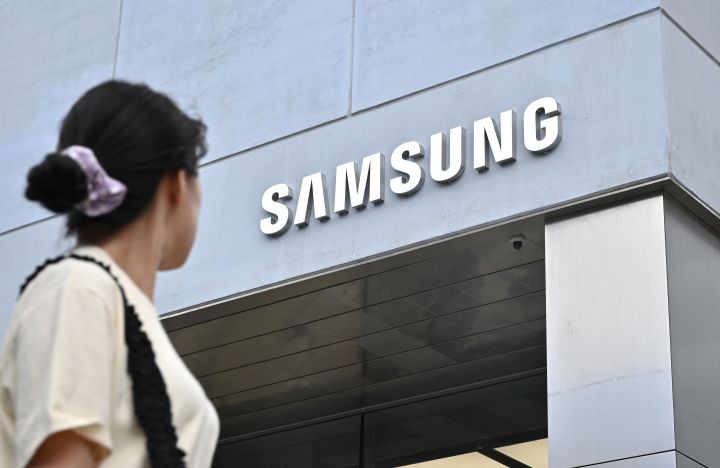
Has the computer chip glut reached its peak?

The electronics company Samsung reported a huge drop in quarterly operating profits this week, down 96% since last year, making it the latest semiconductor company to see a downturn in sales in recent months.
That’s partly because what was once a severe shortage of computer chips early in the pandemic has turned into a supply glut.
The semiconductor industry supplies important components for everything from smartphones and laptops to cars, dishwashers and advanced artificial intelligence systems. And it’s notoriously cyclical, swinging between booms and busts in demand.
Consumers stuck at home buying electronics during lockdowns created a surge in demand for chips, and manufacturers responded, says Willy Shih, a professor of management practice at Harvard Business School.
“Everybody built up a lot, they ordered a lot of chips. And inevitably, what happens is they overshoot the mark,” said Shih.
So chipmakers produced enough to meet those big orders, but when demand dropped off, they were left holding the bag.
“And now we’re working off all that excess inventory. It’s kind of a classic cyclical behavior in this business,” said Shih.
This particular downturn may be nearing an end for a few reasons. For one, a handful of companies have seen surging interest in chips that power artificial intelligence systems.
“The AI chip demand is going to be the leading indicator out of this glut,” said Doug O’Laughlin, who writes a Substack on the chip industry called Fabricated Knowledge. Even outside of AI, he says, chipmakers have some hope for the second half of the year as people start to replace those phones and laptops they bought a few years ago and consumers turn to back-to-school and holiday shopping.
“The whole industry has optimism that things are going to get less bad,” O’Laughlin said.
So as the most recent vicious cycle fades into the industry’s rear view, did they learn anything to avoid the next one? Well, they tried, but it’s difficult to predict demand, says Stacy Rasgon, a senior analyst at Bernstein Research.
“You gotta remember, the semiconductors are at the back of the supply chain. There’s a lot of stages between them making a part and you actually buying a product with that part in it. There’s lots of different stages along that chain,” said Rasgon.
Rasgon sums up an old saying by an industry leader: Semiconductor companies are like the caboose of a train; they can only guess if the engine is moving.
There’s a lot happening in the world. Through it all, Marketplace is here for you.
You rely on Marketplace to break down the world’s events and tell you how it affects you in a fact-based, approachable way. We rely on your financial support to keep making that possible.
Your donation today powers the independent journalism that you rely on. For just $5/month, you can help sustain Marketplace so we can keep reporting on the things that matter to you.
















